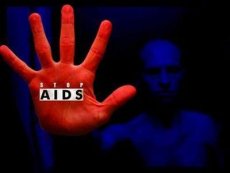New technologies will help in the fight against AIDS
Last reviewed: 23.04.2024

All iLive content is medically reviewed or fact checked to ensure as much factual accuracy as possible.
We have strict sourcing guidelines and only link to reputable media sites, academic research institutions and, whenever possible, medically peer reviewed studies. Note that the numbers in parentheses ([1], [2], etc.) are clickable links to these studies.
If you feel that any of our content is inaccurate, out-of-date, or otherwise questionable, please select it and press Ctrl + Enter.

Scientists from Liverpool University are implementing a project worth 1.65 million pounds, the ultimate goal of which is to obtain the first nano-drug for the treatment of HIV / AIDS.
The project, funded by the Committee on Technical and Physical Sciences, sets a goal for scientists to create more effective drugs with a lower price and fewer side effects for the treatment of newborns and children.
By modifying existing antiretroviral drugs (ARVs), the University has recently created particles of antiretroviral drugs at the nanoscale that can potentially reduce drug toxicity, as well as reduce the risk of "getting used" to the drugs that are prescribed to patients.
"This project is the first step towards the use of nanomedicine for the treatment of HIV / AIDS. It was developed in our laboratories as well as in clinical settings and is an important milestone in the development of new treatments for HIV infection, "said Professor Steve Rannard of the Faculty of Chemistry at Liverpool University.
"If we can show the real potential of the project on the example of clinical work with healthy volunteers at the Royal Hospital of Liverpool University, then our partner, IOTA NanoSolutions, will continue to further improve the method and its clinical testing on HIV-infected patients. We also want our new formula to become accessible to children in developing countries. Our goal is to offer the world a safer and more effective treatment for HIV infection. "
"Our database, collected at the moment, looks impressive and can potentially help reduce the doses of drugs needed to control the HIV virus," adds Professor Andrew Owen from the Department of Molecular and Clinical Pharmacology at Liverpool University. - This project is based on the initiative of Doctors without Borders and other groups that are looking for ways to improve antiretroviral drugs and ensure their safety. We also want to reduce the price of HIV / AIDS treatment in resource-limited countries, where the spread of the disease is the highest. " A new nanomedicine developed by scientists can be diluted in water, which greatly facilitates the treatment of young children and, in the first place, newborns. The development of scientists can give hope to 3.4 million children under the age of 15 in Central Africa. About 90% of HIV-infected children in this region acquire a virus from their mother. Without treatment, a third of them die within the first year of life.

 [
[